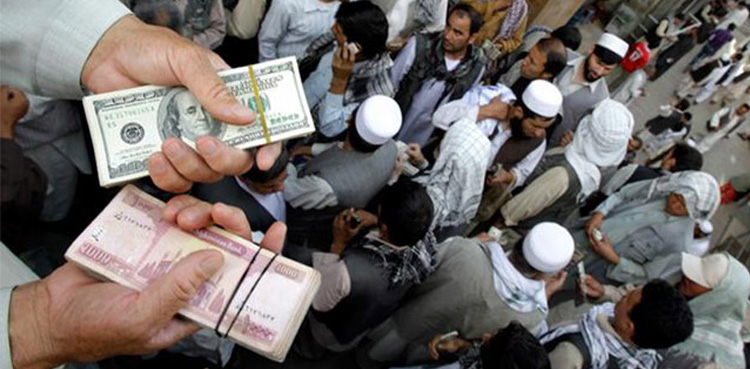Afghanistan’s economy, particularly in earthquake-affected areas, continues to suffer, with 69 percent of Afghans lacking basic resources. Since the Taliban’s 2021 takeover, the economy has contracted by 27 percent, causing widespread unemployment and limited access to electricity. The collapse of sectors like finance has left SMEs and farmers as the economy’s primary drivers. Concerns were also raised over the severe restrictions on women’s rights, including education and employment. The UNDP is supporting microfinance initiatives, yet more substantial investments are needed to stimulate economic growth. Despite the challenges, there is hope in the resilience and efforts of women entrepreneurs and the agency’s support to women-led businesses.

UNITED NATIONS: The Afghan economy and especially regions affected by the devastating earthquakes in October last year, “are still hurting”, the UN Development Programme (UNDP) said on Thursday, as restrictions on women and girls continue to thwart basic rights and economic progress.
Kanni Wignaraja, Director of UNDP’s Regional Bureau for Asia and the Pacific, who recently visited the country, told reporters in New York that 69 per cent of Afghans are “subsistence insecure” – meaning they do not have enough basic resources.
“Something that really hit me … was the harsh impact of continuous natural disasters,” she said, adding that many parts of Afghanistan are facing “dramatic” scarcity of water further setting back development efforts.
Since the takeover by the Taliban in 2021, the Afghan economy has contracted by 27 per cent, leading to economic stagnation, according to UNDP. Unemployment has doubled and only 40 per cent of the population has access to electricity.
Sectors such as finance have “basically collapsed” and there are no major sources of economic activity such as exports or public expenditure, leaving small and medium enterprises (SMEs) and farmers as the lifeblood of the faltering economy.
She also voiced concern over the situation of women and girls.
There have been severe restrictions on women imposed by the Taliban, such as on their dress code and employment in various sectors.
While they can work without restriction in sectors such as health or nursing, their employment in the public sector dropped even further to about six per cent, Ms. Wignaraja said.
“The biggest challenge is the continued edict that bans girls’ education. Not being able to move forward after the sixth grade is a major stumbling block,” she added.
“Last year, no girl graduated the twelfth grade so how are they going to jump from sixth grade to moving into technical colleges or universities need for the medical field?” she exclaimed.
The UNDP official also noted the challenges facing local economies and the lack of capital, especially in the private sector.
UNDP is supporting microfinance initiatives, but with no cash flowing through the system, results are not at the level and scale required to spur growth.
She expressed hope that recent funds from the World Bank for climate projects could prompt other global climate cash investments.
“We can still work directly with the community to make this happen,” she said.
Ms. Wignaraja also visited Herat province, the epicentre of last October’s earthquakes.
“Just driving through villages and talking to villagers, there is a huge contrast,” she said, noting that there are whole villages still living in tents without access to water and those that are starting to build permanent structures.
“For me the bottom line is that we have to let household economies and local economies pick back up. People do not want to live in tents, they cannot survive the sandstorms in tents,” she added.
In conclusion, the UNDP official highlighted the agency’s support to some 75,000 women-owned and women-led micro and small businesses.
“They in turn employ about, on average, six other women and young people. Each of them feeds a household of ten,” she said, noted that in total about 4.5 million people benefit.
“We spend on average $42 a month per women’s business – that’s it,” she added, underscoring the resilience and boldness of women entrepreneurs.
Overall, with women farmers and traders, as well as direct cash support and household social protection prorgrammes, UNDP has reached one quarter of women across Afghanistan, she said.
“The story of this country will come back through their boldness and efforts,” she concluded.
The recent announcement from the UN about the collapse of Afghanistan’s economy has brought to light the dire situation facing the country. The impact of this collapse reaches beyond just financial instability, affecting the lives and well-being of the Afghan people. As the world closely watches and responds to this humanitarian crisis, it is crucial to understand the social, political, and global implications of such a significant economic downturn.
Afghanistan’s economy has been heavily reliant on aid, trade, and international support, making it particularly vulnerable to sudden disruptions. The current situation has left millions of Afghans struggling to access basic necessities and has led to a sharp increase in poverty levels. Businesses and livelihoods have been severely impacted, exacerbating an already fragile socio-economic environment.
The collapse of the economy has ripple effects that extend beyond the country’s borders. It has the potential to destabilize regional trade, impact global markets, and influence geopolitical dynamics. Additionally, the humanitarian crisis unfolding in Afghanistan demands swift and coordinated international assistance to prevent further suffering and instability.
As the world navigates the complexities of addressing Afghanistan’s economic collapse, it is essential to prioritize humanitarian aid, sustainable development initiatives, and diplomatic efforts aimed at fostering stability and resilience. The road to recovery will undoubtedly be challenging, but with collaborative and strategic actions, there is hope for a brighter future for the Afghan people and the broader global community.
Source: ARY NEWS
The UNDP reports that Afghanistan’s economy has collapsed, with 69% of Afghans lacking basic resources. Natural disasters and the Taliban’s restrictions continue to hinder progress. The economy has contracted by 27%, leading to unemployment and limited electricity access. Sectors like finance have collapsed, leaving SMEs and farmers as economic lifelines. The Taliban’s restrictions on women are a major concern, including bans on girls’ education. The UNDP is supporting women-owned businesses and reaching one-quarter of women in Afghanistan. Efforts are being made to revive local economies and provide aid to those affected by earthquakes.
Disclaimer:
This content is AI-generated using IFTTT AI Content Creator. While we strive for accuracy, it’s a tool for rapid updates. We’re committed to filtering information, not reproducing or endorsing misinformation. – Khabristan.pk for more information visit privacy policy








Leave a Comment